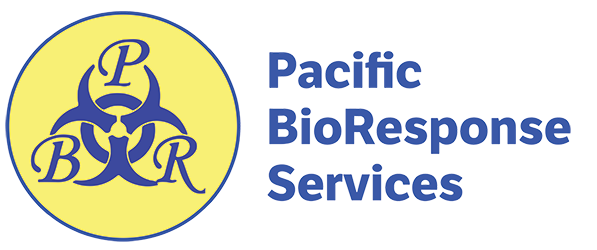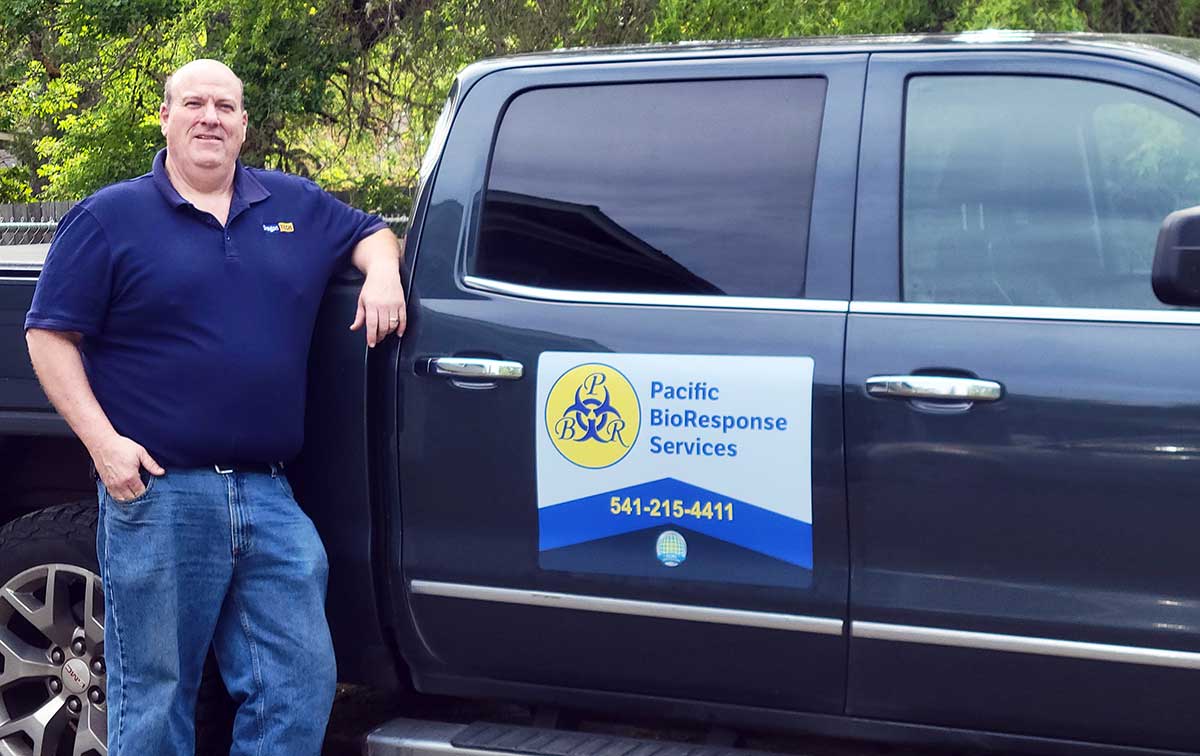Biohazard cleanup—whether addressing bodily fluids, animal waste, or chemical residues—requires more than just cleaning skills. It demands rigorous training and adherence to strict standards to protect health and property. Certifications, like those from the Institute of Inspection Cleaning and Restoration Certification (IICRC), set professional biohazard remediation apart from amateur efforts. At Pacific BioResponse Services, we prioritize certified expertise to deliver safe, reliable results. Here’s why certifications matter and how they benefit you when facing a biohazard crisis.
What Are Biohazard Cleanup Certifications?
Certifications, such as IICRC’s Trauma and Crime Scene Technician, Health and Safety Technician, Odor Control Technician, etc. as well as Bloodborne Pathogens training, verify that technicians have mastered specialized techniques for handling hazardous materials like blood and bodily fluids, bacteria, or chemical toxins. These certifications and training include:
- Safe containment and removal of biohazards to prevent cross-contamination.
- Proper use of personal protective equipment, like respirators and disposable coveralls, to avoid exposure.
- Compliance with health and environmental regulations for waste disposal.
- Advanced sanitization methods to eliminate pathogens and odors.
Certified professionals undergo rigorous testing and continuous education to stay updated on best practices. Dealing with biohazards is a unique challenge for homes, businesses, and communities alike, where untrained cleanup can lead to lingering risks or legal issues.
Why Certifications Make a Difference
Choosing a certified biohazard cleanup team ensures:
- Health Protection: Untrained cleaning can leave behind bacteria or viruses, risking illnesses like hepatitis B, hantavirus, or respiratory infections, among others. Certified technicians use proven methods to fully decontaminate spaces, safeguarding occupants.
- Regulatory Compliance: Biohazards must be disposed of properly, according to strict federal and state laws. Certified firms know these regulations, preventing fines or health violations.
- Property Preservation: Improper cleanup can damage surfaces, allow pathogens to linger, or allow mold growth. Certifications mean technicians are trained to restore spaces without causing further harm, saving costly repairs.
- Trust and Accountability: Certifications signal a commitment to professionalism, giving you confidence that the job will be done right the first time.
Without certified expertise, you risk incomplete cleanup, health hazards, or legal complications, making it critical to verify credentials before hiring.
Actionable Steps to Choose a Certified Provider
To ensure safe biohazard remediation, take these steps:
- Verify Credentials: Ask for proof of IICRC or similar certifications specific to biohazard cleanup—don’t settle for general cleaning claims.
- Check Experience: Confirm the provider has handled cases like yours (e.g., trauma/crime scenes, unattended death, hoarding, etc.).
- Request References: Look for testimonials or case studies showing successful, compliant cleanups.
- Confirm Availability: Biohazards require quick response, so choose a team offering 24/7 service.
- Understand the Process: Ensure the provider explains their containment, sanitization, and disposal methods clearly.
These steps empower you to select a team you can trust for thorough, safe results.
Choose Certified Professionals for Peace of Mind
Biohazards demand skilled, certified handling to protect your health and property. Verify certifications, confirm experience, and act quickly to secure expert help. Contact Pacific BioResponse Services, an IICRC Certified Firm, for trusted, professional biohazard cleanup that delivers safety and confidence.







